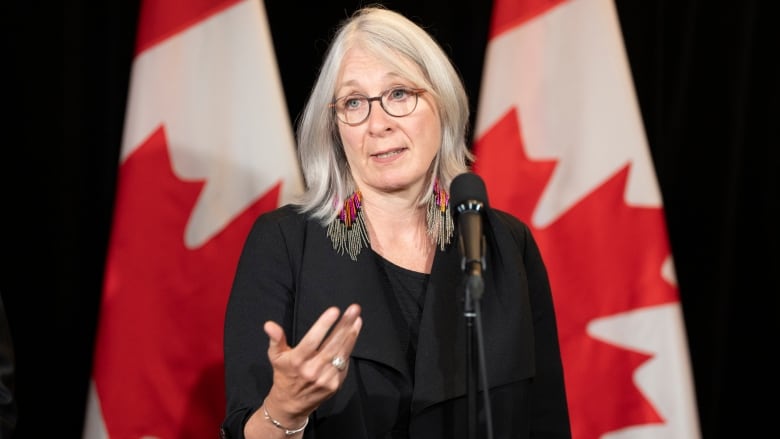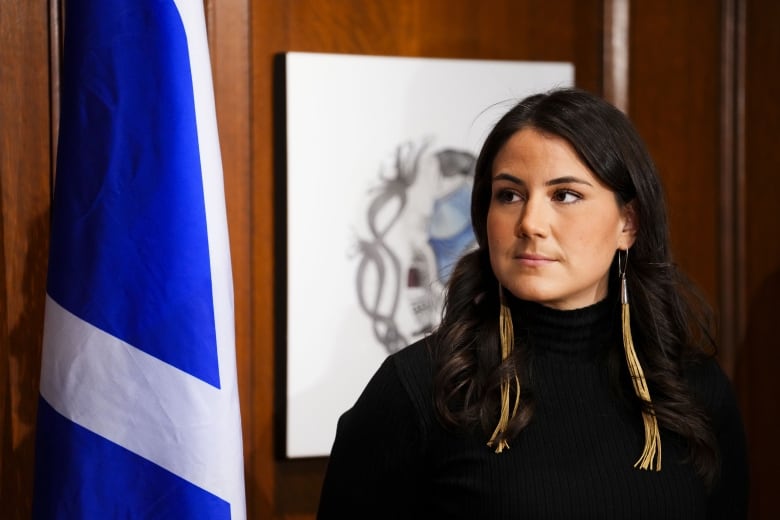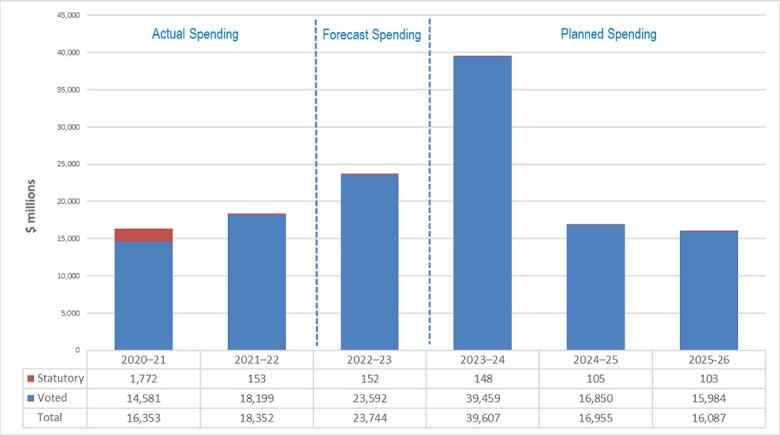Proposed Indigenous Services spending cuts spark concern
'The status quo ... is discrimination in a lot of cases,' says Cindy Blackstock

Advocates are concerned after the Indigenous Services ministerconfirmedher department is eyeing spending cuts, telling reporters in Charlottetownshe plans to target bureaucratic bloat, not direct service delivery.
MinisterPattyHajdu was initially vague when asked at a cabinet retreat in P.E.I. earlier this week about her approach to the Liberal government's cost cuttingbut when pressed, she said Indigenous Services Canada (ISC) will seek the same level of cuts as other departments.
"We're going through the exercise," said Hajdu.
"Every minister is expected to look for savings. For me, the red line is anything that affects the quality of life for First Nations people."
Asked again if that was her advice to cabinet or a personal commitment to the public, Hajdu said it was the latter.
"That's my commitment to First Nations people, and it's the work that the deputy [minister]is doing through the lens of ensuring that service delivery won't be impacted," she said.

The Mtis National Council said the budget cuts were "disappointing" to hear about. President Cassidy Caronexpressed concern Mtis interests will continue to come second to those of non-Indigenous people, considering this year's budget lacked new Mtis-specific money.
"These funding cuts are inconsistent with the spirit and intent of reconciliation and the nation-to-nation, government-to-government relationship with the Mtis Nation," said Caron in a written statement to CBCNews.
Cindy Blackstock,executive director of the First Nations Child and Family Caring Society, said on-reserve services like water, education and housing are already chronically underfunded, so promising not to cutthem means people will just keep getting less.
"The status quo is not that good," said Blackstock, adding that she would prefer a pledge not just to maintain services, but significantly improve them.
"That status quo is discrimination in a lot of cases, andthat can't be the bottom line. They're legally obligated to not discriminate."
Concern as cash dries up
Blackstock and the Assembly of First Nations (AFN) filed a human rights complaintin 2007, alleging the underfunding of child and family services on reserves was racially discriminatory.
The complaint helped deliver a monumental $23-billion proposed class-action settlement and billions more for reform to programs like Jordan's Principle, which ensures First Nations kids can swiftly access essential products and services.
But a review of ISC's public departmental plan for this year shows Jordan's Principle is among a slate of programs set to lose money and staff as cash from past budgets runs out or "sunsets."
ISC forecasts an estimated spending drop from $23.6 billion in 2022-2023 and $39.6 billion in 2023-2024(which includes the $23 billion child welfare settlement)to $16.9 billion in 2024-2025 and then to $16 billion by 2025-26.
ISC also plans to dump more than 1,000 full-time workers, from 7,070 this year to 5,907 in two years, the plan says, unless some programs are topped up.

Programs set to lose some combination of staff or money include the Inuit Child First Initiative, mental health and wellness, implementation of child and family services legislation and Indigenous community infrastructure, among others.
"Decisions on the renewal of the sunset initiatives will be taken in future budgets and reflected in future estimates," the plan says.
This leaves Blackstockwith "serious concerns," saying Canada is legally obliged to properly fund child and family services to stamp out systemic discrimination confirmed in the complaint.
"Our case should be a big red flag for the government, because, to me, this case exemplifies one of the biggest public policy failures in Canadian history."

She said Ottawa could have fixed the program decades ago for much less money, but didn't, deciding instead to keep knowingly underfunding it, risking litigation and even lives. The Canadian government should strive for equality in other areas too so history doesn't repeat, she added.
"That's a lesson that they have to learn," Blackstock said.
"They're at a point now where they're going to be making that choice again."
The AFN's former national chief RoseAnne Archibald, who was ousted earlier this summer, had slammed this year's budget and accused the government of perpetuating a cycle of poverty by intentionally underfunding First Nations.
The group, now led by an interim national chief, declined to comment on the planned spending cuts.
CBC News also reached out toInuit Tapiriit Kanatami but a spokesperson was unavailable for an interview this week.












_(720p).jpg)


 OFFICIAL HD MUSIC VIDEO.jpg)
.jpg)



























































































